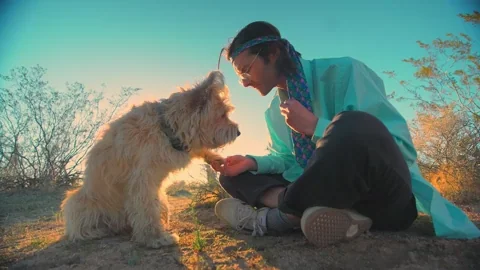You’re getting a puppy. Congratulations!
You finally have the time and money to welcome a new puppy. That’s so exciting!

You’ve decided to work with an ethical breeder, whether because you need a specific breed for service work, or you simply feel drawn to a certain temperament or look. But then comes the sticker shock… the price!

Why are puppies from ethical breeders so expensive?
Turns out, there’s a lot that goes into your puppy before you even get to hold the ball of fur.
What is an Ethical Breeder?
An ethical breeder prioritizes the health, temperament, and long-term well-being of their dogs, not profit.
They follow breed-specific health testing guidelines and support puppy owners for life.
Why It Matters
Choosing an ethical breeder means:
Lower risk of genetic diseases
Better temperament and training
Ongoing support and guidance
Contributing to responsible dog ownership and breed preservation

Ethical breeders focus on 3 main areas in their dogs:
Health & genetics
Predictability & temperament
Early socialization & training
Health & Genetics
Many of the actions ethical breeders take are used to support the puppy’s health, temperament, and future success in your home. This includes health testing for both parents and helps ensure puppies won’t inherit serious genetic conditions like:
Hip dysplasia (makes it hard for dogs to walk properly)
Heart defects
Eye disorders
Breeders often use DNA panels, X-rays, and vet screenings to check for breed-specific risks. These tests aren’t cheap. For example, orthopedic X-rays for hips and elbows can cost $310 total.

Add in genetic testing:
$60–$170 per dog
$500+ for prenatal care like ultrasounds and x-rays
...and you start to see why prices climb.
All these upfront costs help ensure:
Healthy parents, which means overall healthier puppies
Transparent records, which means a paper trail and peace of mind for owners
Early detection, which means fewer surprise vet bills later
Predictability & Temperament
Choosing a dog with a known temperament traits means fewer mismatches, smoother training, and a better bond between you and your furry friend.
Ethical breeders don’t just breed for looks, they breed for personality. By studying the temperament of parents and grandparents, they can better predict:
Energy levels
Trainability
Sociability with kids, pets, and strangers

This matters whether you want a couch cuddler or a future agility champ. Breeders often use temperament tests and behavioral assessments to match puppies with the right homes. These tests aren’t perfect, but they help avoid mismatches that lead to rehoming or behavioral issues.
Predictability means fewer surprises and a better fit for your lifestyle.
Early Socialization & Training
Well-socialized puppies are more confident, easier to train, and less likely to develop anxiety or aggression later in life or when scared.
The first few weeks of a puppy's life shape a lifetime. From birth to 8 weeks, puppies go through critical learning windows.

Responsible breeders don’t wait for new owners to start training. The puppy's socialization begins soon after birth. Early experiences help puppies grow into adaptable, emotionally balanced dogs.
Ethical breeders use this time to:
Begin early neurological stimulation (ENS) protocol, a series of exercises from days 3–16, which help boost stress tolerance, heart health, and disease resistance.
Control exposure to sounds, surfaces, and objects, which builds curiosity and reduces fear.
Introduce positive human interaction, which teaches puppies that touch, grooming, and handling are safe and enjoyable.
Provide consistency and gentle reinforcement to help puppies learn boundaries without fear.
These actions aren't just for fun — they're science-backed. Programs like ENS help puppies grow into resilient, well-adjusted adult dogs.
Economics of Ethical Breeding
Here’s the truth: ethical breeders rarely make big profits. Why?
Because they prioritize:
Quality over quantity (fewer litters per year)
Vet care, food, supplies, and emergency funds
Time spent matching puppies with the right homes
Responsible breeders invest in health, temperament, and long-term support, which means higher upfront costs but better outcomes for dogs and owners. These breeders offer lifetime advice and support, or will take back dogs later in life if current owners can't care for them.

Here’s where the money goes:
Health testing like DNA screens, X-rays, and vet checks — usually $300–$500 per dog
Prenatal care like ultrasounds and x-rays — often $500+
Emergency procedures like C-sections can cost $600–$1,500
Vaccinations — usually $75–$100 per shot per puppy
Basic care like food and toys costs about $200–$400 per litter
Even when puppies are priced between $2,000–$3,500, many ethical breeders barely break even. Good breeders often lose money — though it’s not about making the most money, it’s about doing what’s right.
When Should I Contact Breeders?
The trick is to figure out what you actually want in a dog, then see which breed fits you best.
Good places to start looking:
Functional Dog Collaborative: A website and community where dog breeders share ideas about raising healthy, happy dogs.
Companion Dog Project: A group that helps people find breeders who focus on making great family companions.
These are just starting points. Think of it like a map — you still need to choose the right path for you.
 Answer the following before welcoming a puppy into your life:
Answer the following before welcoming a puppy into your life:
What do you need your dog to do every day in your real life?
What makes your family happiest: cuddling, playing games, going on walks?
How much time and money can you put toward brushing, grooming, and exercise?
Quiz: Buying a Puppy

Brad and his partner Jenny want a loving dog that would fit well into their lifestyle. They love hanging out in their backyard and taking little trips to the park and local town squares on the weekends.
They haven't contacted any breeders yet.
Quiz
What should Brad and Jenny do? Select all that apply:
Take Action
Ethical decisions today mean fewer regrets tomorrow. Finding the right dog starts with the right values. Responsible breeders care about more than just looks or pedigree. They prioritize health, temperament, early development, and long-term support.

Before reaching out to a breeder:
Your feedback matters to us.
This Byte helped me better understand the topic.
